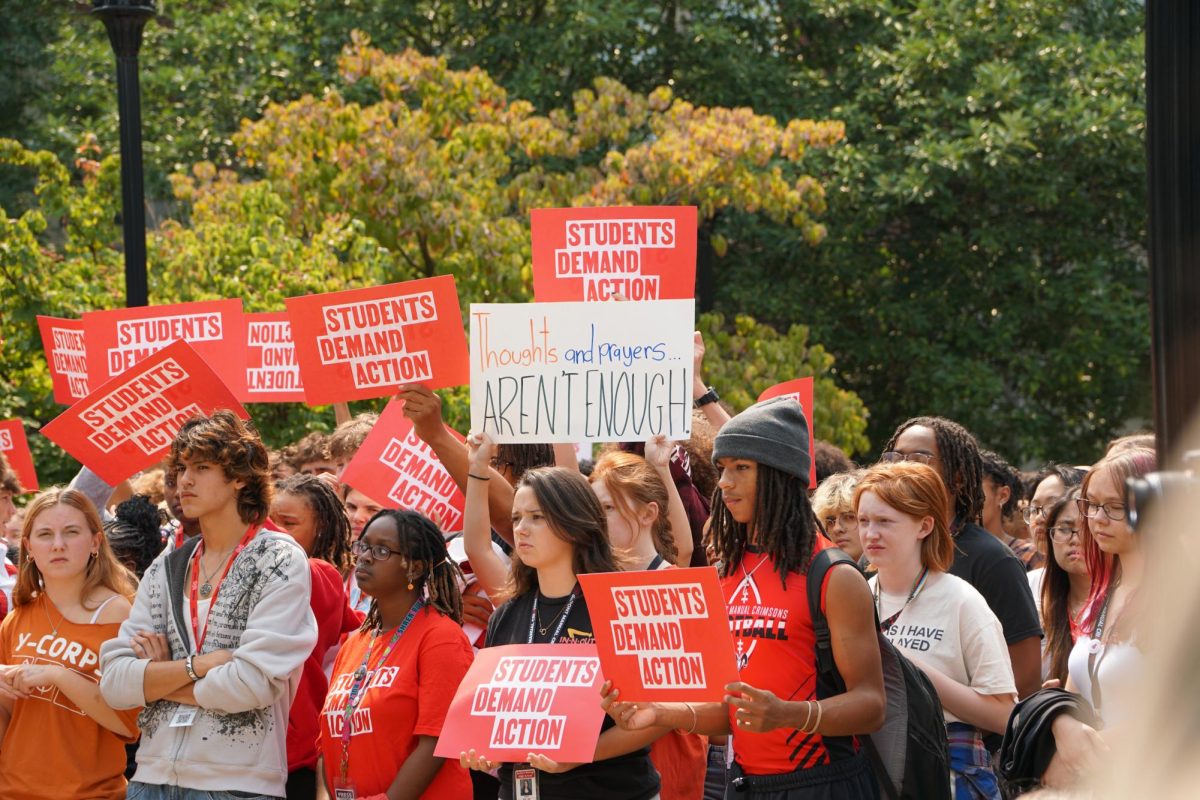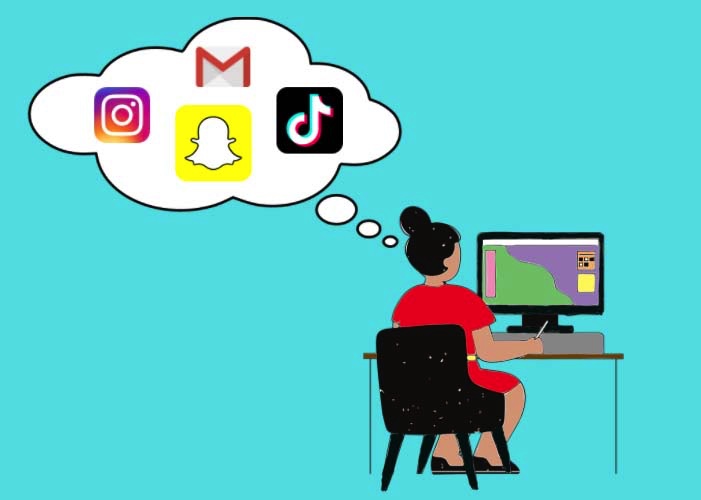Editorial: Being conscious of your digital footprint is more important than ever
Hudson Fox
With the growing usage of social media platforms, being conscious of your digital footprint is important.
October 25, 2021
Our digital footprints are becoming more important now than ever, and many people, especially adolescents, are refusing to heed the warnings.
The recent demise of Las Vegas Raiders head coach Jon Gruden laid bare how the unearthing of one’s digital footprint can mangle a reputation overnight.
In a shocking set of emails, Gruden described the National Football League’s (NFL) league commissioner Roger Goddell with misogynistic and homophobic terms and derided the players union executive director using racist stereotypes.
Gruden, whose attempts at backtracking from racially insensitive comments attracted the ire and attention of the media, quickly became a case study in the potential impact of one’s digital footprint.
Jon Gruden’s situation is not an uncommon one. In 2017, the CEO of the Miss America Organization, Sam Haskell, resigned after coming under fire for comments in emails that included content discussing the body and looks of one contestant while including a crude and disparaging comment about another contestant, according to NBC News.
Similarly, after the confluence of the pandemic and the rise in protests across the nation in June 2020, multiple CEOs and influential leaders stepped down from their professional positions due to comments made in social and traditional media. For example, Crossfit CEO Greg Glassman resigned on June 9, 2020, after his tweet and subsequent comments on the death of George Floyd were criticized for being insensitive, according to Forbes.
All of these examples are part of a broader trend. The leader falls back on the excuse that they did not mean what was said and that their comments were being taken out of context. They lament the situation, expressing regret that they sent such a message. Sometimes, in a moment of introspection, they may even acknowledge that they did not expect their messages to be exposed or leaked to the public.
Yet, in today’s society, when sending a text message or a snap, each of us must realize that there is almost always a chance that the message will become public. For those who ignore that reality, it could be problematic.
With the rise of social media platforms such as Snapchat and Instagram and the widespread usage of text messaging and emails to communicate, interactions that would have otherwise occurred face to face are now occurring online. Some of our most intimate thoughts and feelings are now funneled through these systems that transmit, track and store our every communication, regardless of our intention or our state of mind at that moment.
The pandemic only exacerbated this trend. Faced with interminable days at home and monotonous routines, teenagers across the world turned to TikTok and similar virtual platforms to fill their time. In fact, according to CNBC, TikTok has grown with amazing rapidity over the last two years, from 507 million monthly users in December 2019 to 1 billion users as of late September.
The intoxicating allure of social media plays a big role in today’s society, and you’ll be hard-pressed to find a teenager without some sort of social media account. With more ways to communicate with friends online than ever before, teenagers’ personal information, messages, and memories are documented and stored across the internet.
But what most teenagers do not realize is that, despite all the promises of security and anonymity online, what you do online leaves a virtual footprint that can usually be traced back to you. Many teenagers, who use social media sites to let off steam, chat with virtual friends, and make jokes, could be putting their futures in peril by not being aware of this.
Students who get drawn into an argument online about a controversial subject matter, who make a joke on a Discord server or Snapchat group chat about a sensitive topic, or who use a racial trope to describe a close friend in a joking manner, could face unexpected consequences when it’s time to apply to college or get a job.
So, there is an obvious question for each of us: how do I make sure that my public digital footprint represents who I am?
In response to that concern, many students have gravitated towards limiting their unfiltered interactions with others to Snapchat. The platform promises that communication will be deleted after the intended recipient receives them and that a sender will be notified to the recipient screenshotting their message. Knowing what exactly has been captured helps, but these methods are not foolproof.
On most sites, content never is truly deleted. Most online material has a record, and whether it be in a database or your friend’s camera roll, students still run the same risk by putting material out on social media.
For those who want to put the best foot forward and not want to worry about a future employer uncovering an inappropriate message they sent in tenth grade, use common sense. If something seems like it could be offensive or hurtful, do not post or send that message even if you feel comfortable the recipient would not care.
As teenagers living in an ever more connected digital world, we need to be cognizant that our words have an impact. If we are not careful with our digital communications, they may have unintended consequences well into our future.
Hudson Fox.
This story was originally published on Scot Scoop News on October 19, 2021.






































